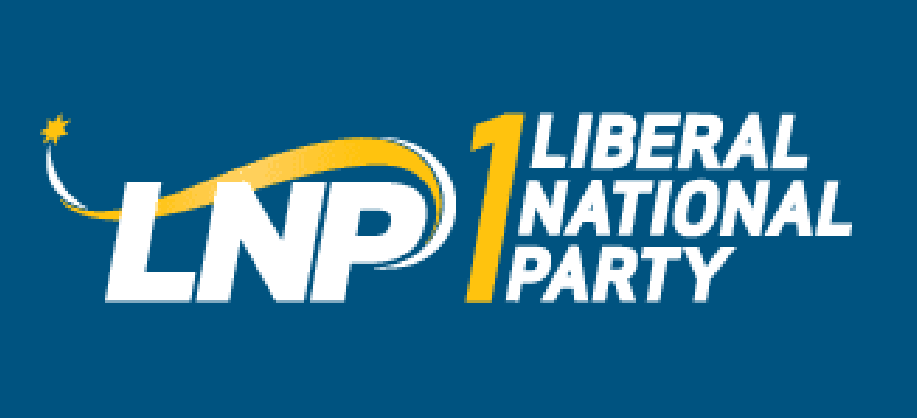Communications Legislation Amendment (Combatting Misinformation and Disinformation) Bill 2024 – Second Reading – Speech in the House of Representatives 07/11/2024
Hansard 07/11/2024 House of Representatives
Mr LLEW O’BRIEN (Wide Bay) (10:46): I rise to add my voice and objection to the bill before the House, the Communications Legislation Amendment (Combatting Misinformation and Disinformation) Bill 2024. We’ve heard from numerous speakers about this bill and the nature of it. I must say that I think that, in my eight years of coming to this place and serving the people of Wide Bay, this is one of the most dangerous bills and most grievous attacks on what we hold close in our nation and what makes us great as a nation—the element of free speech.
This version of the bill gives the regulator, the Australian Communications and Media Authority, ACMA, powers to require digital platforms to take specific steps to reduce misinformation and disinformation. Under the bill, ACMA does not make rulings on whether a particular piece of content is misinformation or disinformation. Rather, it is given powers to determine whether digital platforms are taking adequate steps to prevent and respond to misinformation and disinformation. If ACMA determines that a platform is not taking adequate steps, it can issue fines of up to five per cent of the company’s global turnover.
The ubiquitous nature of the internet places it in all of our lives, and it’s ever increasing. We didn’t rely on it for much at all 20 years ago. It was only a minor part of our lives. But it has become an important part of our lives on many levels. In terms of safety, governments rely on it to convey a message. In terms of communication, when my predecessor started in this place in 1990, the way you got your message across was in the letters to the editor in the newspaper. That was the forum, and it took much time. But now we’ve evolved. The discussion happens in real time and online, and that is a good thing. People have the opportunity to discuss, and sometimes they do get it wrong in those discussions. Sometimes they will unintentionally put something forward that may not be right, but they should not be committing an offence, particularly where there is no intent. But this bill certainly puts those in charge of platforms in a position where they will receive a penalty if they allow that to happen. That will have the consequence of dumbing down free speech. This, for me, is a digital version of the burning of the books. It worries me tremendously.
Of course, you need some regulation within this environment; it has its great dangers. Recently this Albanese government was dragged kicking and screaming to age verification for young people, so we’ll have safeguards for young people accessing pornography and gambling sites. That’s good. They’re the sorts of regulations and rules that we need. They actually help society. But this bill is clearly an attack on free speech and an attack on everyday citizens who want to engage in that. Instead of encouraging people to speak, to use their words to make their point, we have a government that is shutting them down. This is the sort of stuff you see in Russia and in China. This is not Australia. This is absolutely frightening.
My constituents have inundated me with their concerns about this bill, and I share them. I share the concerns of the 20,000 people that gave feedback to the initial draft that went out, which this bill is a rehash of. I share those concerns because those concerns are real. This is poor legislation.
The misinformation definition is one that is broad and open to interpretation. As I said before, it captures opinions that can be made in good faith. How is that happening in a democracy like Australia? Something that’s said in good faith is now an offence, and someone’s going to be fined for not shutting it down.
On the serious harm element of this bill, the broad definition of ‘serious harm’, we’ve got very recent and stark examples where this applies. Serious harm can occur in the environment of an election or a referendum. Now, that’s a good one. We all lived through the recent referendum on the Voice, and the use of the term ‘misinformation’ there was absolutely extraordinary. We had a government who were providing no information. Typically, you’re discouraged from making a negative inference on something, but there are times when it’s valid to make a negative inference—when a government has information they’re not sharing with you and when they’re not answering the questions. We saw this with the Voice, with the construction of what they were proposing. It was open to the opponents of that to say: ‘This is what it is. They’re not saying it. This is what it is.’ Those negative inferences would now be seen as misinformation. They were absolutely valid and an important part of the discussion and debate. It beggars belief.
On public health, the one time I crossed the floor in this chamber was to support Craig Kelly in a motion that was calling on this place to discuss what was happening in terms of government regulation. That was my side, but both sides were guilty of overreach when it came to that. That motion—that I crossed the floor on, to bring on a debate about those things—was lost. In my mind, that showed that this place and government could get things wrong, because we weren’t discussing things. Discussions were being shut down and valid points were being censored. We saw that through COVID. Now we’re legislating to make misinformation and disinformation a part of our lives. If that wasn’t a big enough example for all of us to say, ‘Let the sun shine in, let the views and opinions of everyone come forward, let’s look at them,’ then we’re in uncharted territory. No. Let’s shut down the discussion. Let’s not let people speak. That’s not why I stand in this place, serving the people. I stand in this place to encourage discussion. And if that discussion is wrong, then so be it. That’s the whole nature of debating things.
This bill is so open to potential political weaponisation, it is absolutely disgraceful. The minister can personally order misinformation investigations! Orwell’s has had a good run through this, but I’ll say that again: the minister can personally order misinformation investigations. What is happening to Australia under this Albanese government?
They can exempt certain digital platforms. So, the minister can say, ‘Oh, no; I think that one is exempt.’ Why? Well, you don’t have to be Einstein. There will be political bias associated with the determinations on this.
Mr Pitt: The CFMEU.
Mr LLEW O’BRIEN: My colleague mentions the union movement, the CFMEU, and I agree wholeheartedly with him. This bill also treats Australians differently. Academics and scientists and artists are treated differently. Now, I’m not going to criticise academics or scientists, but let’s not kid ourselves and deny that history shows that sometimes the best research and the best science money can buy has backed up things that we now know to be completely wrong. If you’re an academic, you can’t be challenged under this legislation. I find that a bit confronting as well. That the average Australian citizen is treated like they’re dumb, effectively, but if you’ve got a few letters in front of your name you’re exempt from this legislation.
I didn’t finish high school. I stand here in the parliament representing my people because they have had a good look at me and they’ve said to themselves: ‘We like this bloke. We think he’s trustworthy and we’ll put him in there to represent us.’ I didn’t finish high school. I’m treated exactly the same in this chamber, because that’s what democracy and debate is about. We’re all equals. There are plenty of people in here who are far more educated than what I am, but they’re equal to me in this place. That’s what we should be striving for in society. But, instead, this draws a line and says: ‘You’re an academic. You’re qualified, therefore you can speak freely. But because your friend hasn’t been educated in the same way, I’m sorry, we’re going treat them very differently.’ This is the stuff of nightmares.
ACMA also has information-gathering powers—once again, very frightening stuff. I’m not alone, obviously. I said before that many of my constituents—there were 20,000 responses to the discussion paper when it went out, so I’m not alone. And I’ll read what the New South Wales Solicitor-General, Michael Sexton, had to say. He said:
It targets contestable political opinions on social media and is based on the patronising assumption that members of the community cannot make a judgment about those opinions but must be protected from the obvious inadequacies of their judgment.
That’s a more articulate and concise version of what I said before. This government is treating people as if they are dumb and they can’t be trusted with their own words.
An opposition member interjecting—
Mr LLEW O’BRIEN: Or beliefs—exactly. To go to beliefs, the Australian Christian Lobby said:
There is no excuse for what’s proposed in this bill.
Where the government should be safeguarding the free speech of Australians, it will instead require social media to control our public discourse. From public health to politics to the economy and ideology, how this bill defines harm will determine what you are allowed to say online.
If this bill passes the parliament, it will be a very, very sad day for Australia and it will signal a very dangerous future where government tells you what you can and can’t say and government penalises people and organisations for not policing the truth in the way that it would like.


